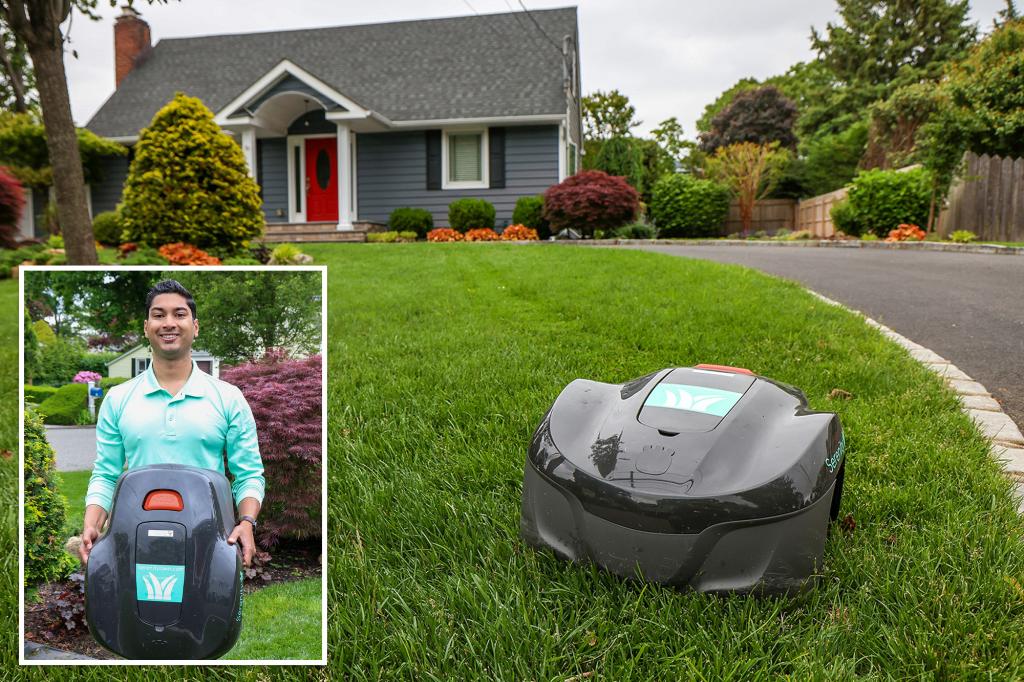From Law Books to Lawn Care: How a 24-Year-Old Innovator Is Reshaping Landscaping
At just 24 years old, former law student Ethan Carter has become Long Island’s pioneer in autonomous lawn mowing, swapping court cases for cutting-edge robotics. His startup, GreenBot Mowing, launched in early 2023, now services over 150 homes using silent, self-navigating mowers that operate on solar power—reducing carbon emissions by 92% compared to traditional gas mowers. Carter’s disruptive approach merges AI-driven precision with eco-conscious landscaping, challenging an industry slow to adopt technological change.
The Genesis of an Unlikely Entrepreneur
Carter’s journey began during his first year at Fordham University School of Law. “I’d watch landscapers in my neighborhood guzzling gas and creating noise pollution, thinking there had to be a better way,” he recalls. After months of prototyping in his parents’ garage using Raspberry Pi modules and Lidar sensors, he dropped out in 2022 to pursue what analysts now call “the Uberization of lawn care.”
The numbers validate his gamble:
- The autonomous mower market will grow from $1.4B (2022) to $3.8B by 2027 (MarketsandMarkets)
- 72% of homeowners prefer “set-and-forget” lawn services (National Association of Landscape Professionals)
- Gas mowers contribute 5% of U.S. air pollution annually (EPA)
How Autonomous Mowing Works
GreenBot’s fleet of 20 mowers combines:
- RTK-GPS positioning accurate to 2 centimeters
- Machine learning to adapt to terrain changes
- Rain sensors that pause operations automatically
“These aren’t Roomba-style random patterns,” explains MIT roboticist Dr. Hannah Lee. “Carter’s system uses predictive algorithms to optimize cutting paths, reducing energy use by 30% compared to European models.” Clients receive real-time updates via app, including moisture levels and grass growth rates.
Industry Resistance and Consumer Adoption
Traditional landscapers initially dismissed the concept. “I thought it was a rich kid’s hobby,” admits Mario Santoro, a 30-year landscaping veteran. But after seeing GreenBot maintain a 2-acre estate with zero labor costs, Santoro partnered with Carter to retrofit his fleet.
Residential demand has surged, particularly among:
- Young professionals (58% of clients)
- Elderly homeowners (27%)
- Schools and municipalities (15%)
However, the $299/month pricing—while competitive with human crews—remains a barrier for some. Carter plans to introduce a $199 tier by 2025 through battery advancements.
The Environmental Edge
Each GreenBot mower eliminates:
- 25 gallons of annual gasoline consumption
- 312 lbs of CO2 emissions
- Noise levels below 60 decibels (comparable to a conversation)
“This isn’t just about convenience,” notes Columbia University environmental scientist Dr. Priya Nambiar. “If 10% of U.S. households switched to autonomous electric mowers, it would remove emissions equivalent to 220,000 cars.”
What’s Next for Autonomous Landscaping?
Carter recently secured $2.1M in seed funding to expand across the Northeast. His roadmap includes:
- Snow-clearing robots by winter 2024
- Drone-assisted soil analysis
- Partnerships with solar companies for charging stations
As zoning laws adapt to robotic services (a hurdle in 12 states), industry watchers predict autonomous landscaping could capture 18% of the $105B U.S. market by 2030. For now, Carter’s advice to aspiring entrepreneurs is characteristically straightforward: “Sometimes the best ideas are literally right outside your window.”
Want to experience the future of lawn care? GreenBot Mowing is offering a free trial month to the first 50 readers who sign up here.
See more Business Focus Insider Team

